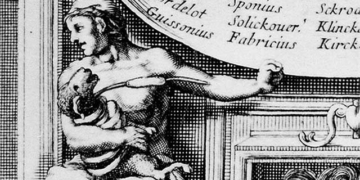Earth Prize 2022 from Switzerland Awards First Prize to Vietnamese Student Group with Biodegradable Sanitary Pad Idea from Dragon Fruit Peels.
The student group consists of Tran Quynh Anh (15 years old, Ho Chi Minh City), Bui Tu Uyen (17 years old, Hanoi), and Luong Anh Khanh Huyen (16 years old, Hanoi) who won the highest award at the Earth Prize 2022, according to information from the Swiss Embassy in Vietnam. The three girls surpassed 650 teams from 516 schools across 114 countries and territories.
“We were very surprised to be announced as the winning team and very happy because after 6 months of effort, we have been rewarded,” said member Bui Tu Uyen (a student at Hanoi Amsterdam High School and the Vietnam National Academy of Music).

The Adorbsies Team consists of three members (from left to right): Luong Anh Khanh Huyen, Bui Tu Uyen, and Tran Quynh Anh. (Photo: NVCC)
Uyen recounted that in September 2021, calls from the community and society to participate in “saving agricultural products” with low-priced dragon fruit sales flooded major cities like Hanoi, capturing the attention of Gen Z girls. Recognizing that this agricultural product could be used as a biodegradable material, Quynh Anh (Dorothy), Uyen, and Huyen conceived the idea of producing environmentally friendly sanitary pads—something that is almost non-existent in the Vietnamese market. This idea has now blossomed into a project that has won them a $100,000 prize.
Initially, the group considered making products like baby diapers, but later decided to create items familiar to women. This is not a new direction, but the group’s approach is entirely different as they use dragon fruit—a fruit widely grown and sold in Vietnam.
“We researched various materials like bamboo and banana peels, but were quite surprised that there hasn’t been much interest or exploration into the physical and chemical properties of dragon fruit,” Uyen stated, adding that this is a potential material that can help solve agricultural product issues and utilize agricultural waste.
As the main technical person, Uyen noted that the group utilized fiber and pectin found in dragon fruit peels to create a product with good absorbency. Specifically, fiber is used in the absorbent core, while pectin forms a biodegradable membrane on the outer layer to prevent leaks. The girls worked together to analyze the physical and chemical properties of dragon fruit, extracting fiber for testing and creating rough product samples.
Uyen mentioned that researching and understanding how to process materials to create the product was the most challenging part. “Since it is a new material, it takes more time to process,” she explained.
Throughout the idea development process, the three girls never met in person due to Covid-19, geographical distance, and their school schedules. They kept in touch via social media and worked online whenever discussions were needed. Previously, the girls met in an extra class and discovered their shared passion for environmental issues. Member Tran Quynh Anh (a student at International School Ho Chi Minh City) shared that they named their group “Adorbsies,” meaning cute things.
Quynh Anh explained that when people think of environmental protection, they often associate it with great inventions or widely known actions like planting more trees that no one does. “We want to prove that even cute little products can change how many people perceive these issues,” she said.
Member Luong Anh Khanh Huyen (studying at Concordia International School Hanoi) mentioned that currently, there are not many companies providing environmentally friendly sanitary pad products, especially in the recycled category. Therefore, the group lacks much information about the market and faces challenges in assessing the product’s consumption potential and impact.
Nevertheless, they plan to use the prize money to produce a trial batch of this eco-friendly sanitary pad. The group also hopes to allocate funds to implement a project encouraging women and ethnic minority girls to use sanitary pads and practice personal hygiene to prevent gynecological diseases. “We want to challenge ourselves and carry out a meaningful community project to make the best use of the money we have been fortunate to receive,” Huyen said.
This is the first year the award has been organized by the Earth Foundation—a non-profit organization based in Geneva, Switzerland—to showcase the most promising ideas and projects to address environmental issues. The competition is open to students aged 13 to 19 worldwide, with a total prize value of $200,000. The first prize of $100,000 will be awarded to the team with the most promising project. Three second-place teams will each receive $25,000, and the remaining $25,000 will be awarded to a mentor and an educator.

















































